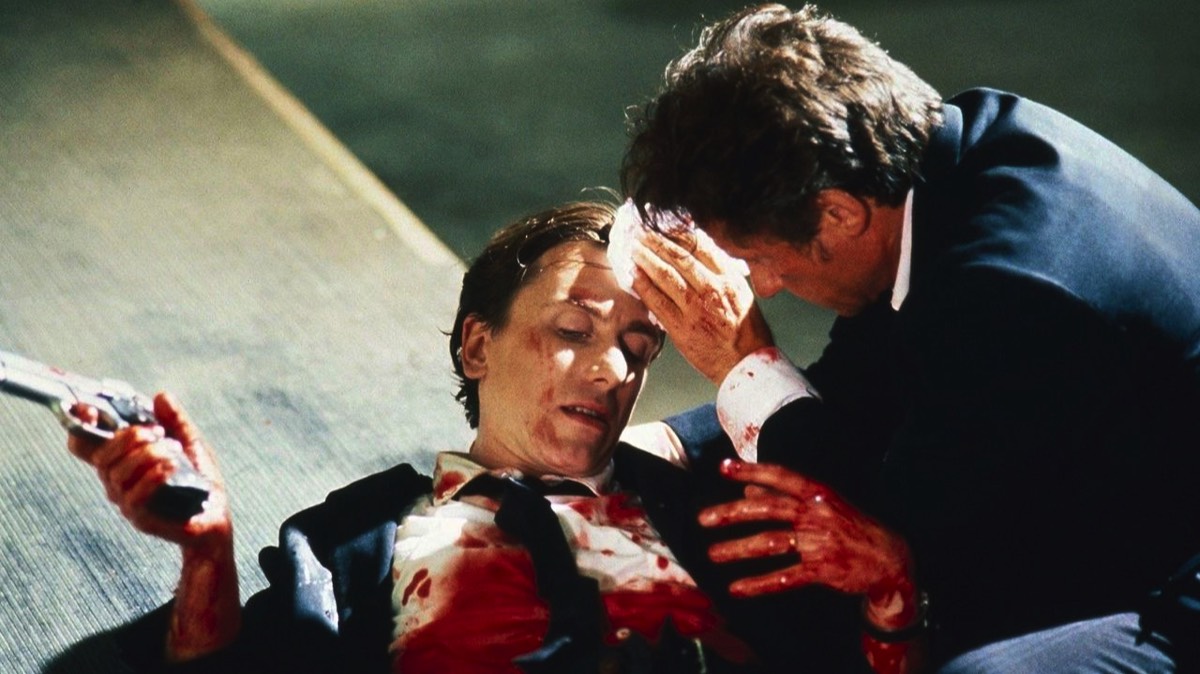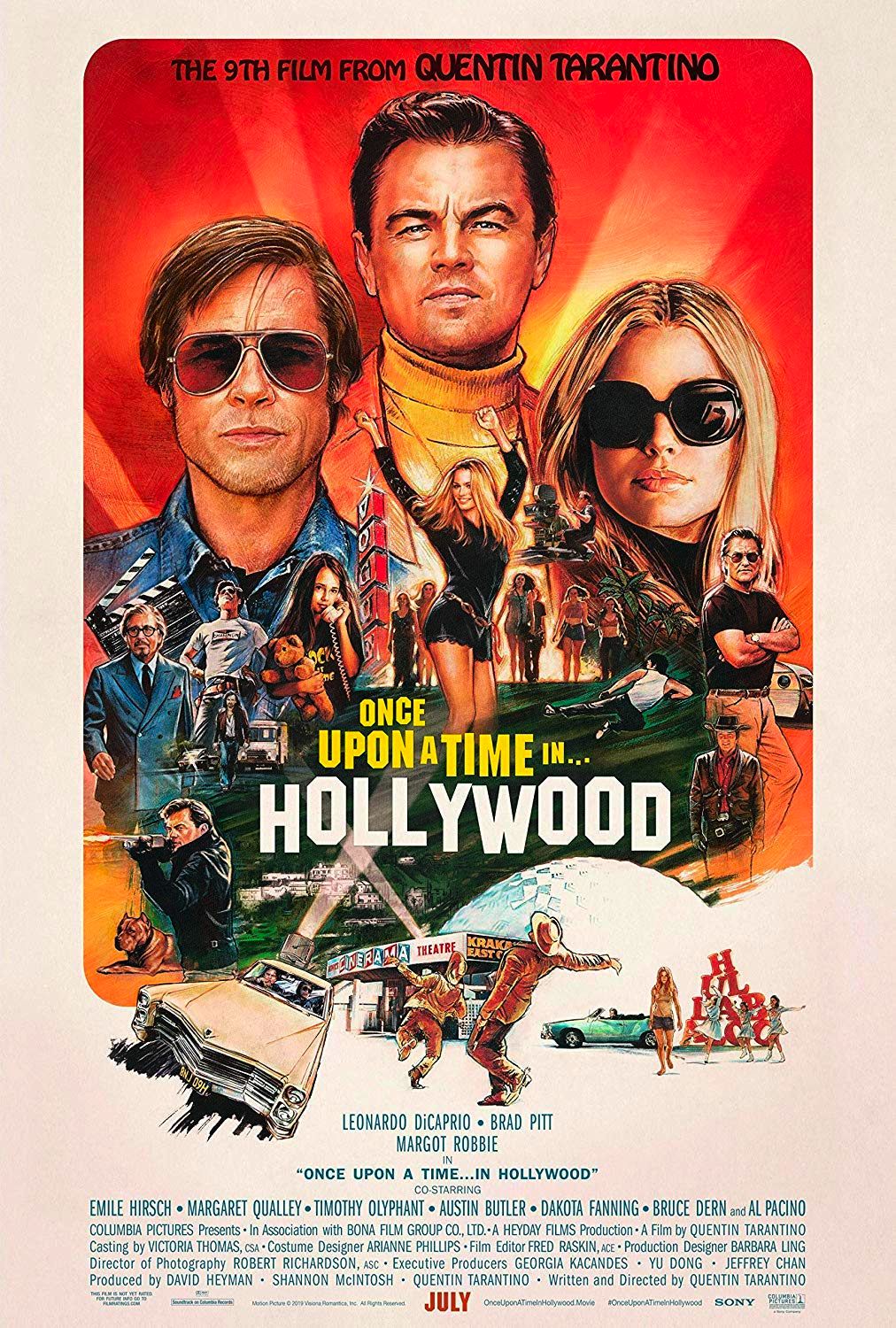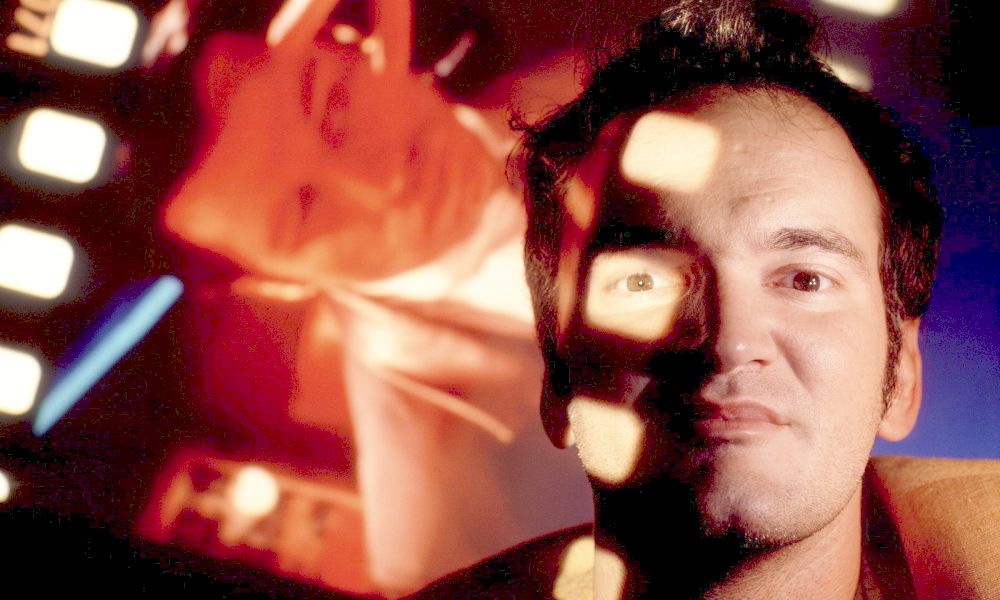"Bound within an allusive, postmodern sensibility, Tarantino's work conflates 'high' and 'low' cine-cultural forms, referencing an array of seemingly incompatible sources such as Jean-Luc Godard, 1970s blaxploitation and Hong Kong action cinema." - Neil Jackson (Contemporary North American Film Directors, 2002)
Quentin Tarantino
Director / Screenwriter / Actor / Producer / Cinematographer
(1963- ) Born March 27, Knoxville, Tennessee, USA
Top 250 Directors / 21st Century's Top 100 Directors
(1963- ) Born March 27, Knoxville, Tennessee, USA
Top 250 Directors / 21st Century's Top 100 Directors
Key Production Country: USA
Key Genres: Crime, Western, Martial Arts, Thriller, Gangster Film, Ensemble Film, Crime Thriller, Action Thriller, Action
Key Collaborators: Sally Menke (Editor), Lawrence Bender (Producer), Robert Richardson (Cinematographer), David Wasco (Production Designer), Samuel L. Jackson (Leading Character Actor), Michael Madsen (Character Actor), Uma Thurman (Leading Actress), Fred Raskin (Editor), Tim Roth (Leading Character Actor), Kurt Russell (Character Actor), Brad Pitt (Leading Actor), Leonardo DiCaprio (Leading Actor)
Key Genres: Crime, Western, Martial Arts, Thriller, Gangster Film, Ensemble Film, Crime Thriller, Action Thriller, Action
Key Collaborators: Sally Menke (Editor), Lawrence Bender (Producer), Robert Richardson (Cinematographer), David Wasco (Production Designer), Samuel L. Jackson (Leading Character Actor), Michael Madsen (Character Actor), Uma Thurman (Leading Actress), Fred Raskin (Editor), Tim Roth (Leading Character Actor), Kurt Russell (Character Actor), Brad Pitt (Leading Actor), Leonardo DiCaprio (Leading Actor)
"One of the key figures in the debates around the fate of cinephilia is Quentin Tarantino (b. 1963), who famously had his formative education as a video store clerk. His own filmmaking is very much indebted to the Blaxploitation genre of American cinema, which by revisiting, he has helped to redeem from the dustbin of history. Is this videophilia? Or is it the cinephilia of the collector, whose obsessive and passionate movie watching is yet another foray into the politics of good taste?" - Schirmer Encyclopedia of Film, 2006
"The most notorious of the US indies, Tarantino has mixed wit, violence and cinephilia into an incendiary cocktail that rewrote the multiplex mantra of the post-Jaws era." - Richard Armstrong (The Rough Guide to Film, 2007)

Reservoir Dogs (1992)
"After working as a video clerk while studying acting, he used the sale of an early screenplay to raise money for his first directorial venture, Reservoir Dogs (1992), a violent heist movie that became a huge success. Noted for his witty dialogue, non-linear narratives and distinctive use of music, he has since blended humour with stylish violence to great effect, and achieved cult status as a director." - Chambers Film Factfinder, 2006
"Movie-fanatic Tarantino rose rapidly to fame with Reservoir Dogs and Pulp Fiction, graphically bloody, amoral, semi-comic variations on traditional crime themes: loyalty, betrayal, professionalism, the need for mutual respect." - Geoff Andrew (The Director's Vision, 1999)
"With their philosophical dimensions, unremitting representations of venality and depravity among the criminal under and over class, art cinema narrational complexities, and black humor, Tarantino's first two films are strikingly original contributions to an American cinema struggling to rebound from the artistic doldrums of the 1980s." - R. Barton Palmer (The St. James Film Directors Encyclopedia, 1998)
"Tarantino received his education working in down-market video stores that rented ultra-violent movies, spaghetti Westerns, and kung-fu epics - the inspiration behind his films. He also drew on the American B-crime genre for Reservoir Dogs (1992), and Jean-Luc Godard's deconstructions of noir themes for Pulp Fiction (1994)." - Ronald Bergan (Film - Eyewitness Companions, 2006)
"In so many ways, he is the epitome of that brilliant, remorseless, empty-life student that every film teacher has tried to avoid. And yet, he is a real, weird writer, a conduit for swinging, hardboiled talk which, if it is gangsterese for the moment, might one day end in inspired comedy." - David Thomson (The New Biographical Dictionary of Film, 2002)
"Quentin Tarantino was perhaps the most distinctive and volatile talent to emerge in American film in the early '90s. Unlike the previous generation of American filmmakers, Tarantino learned his craft from his days as a video clerk rather than as a film-school student. Consequently, he developed an audacious fusion of pop culture and independent arthouse cinema; his films were thrillers that were distinguished as much by their clever, twisting dialogue as their outbursts of extreme violence." - Stephen Thomas Erlewine (Allmovie)
"Movies are my religion and God is my patron. I'm lucky enough to be in the position where I don't make movies to pay for my pool. When I make a movie, I want it to be everything to me; like I would die for it." - Quentin Tarantino
"To me, movies and music go hand in hand. When I'm writing a script, one of the first things I do is find the music I'm going to play for the opening sequence." - Quentin Tarantino
Selected Filmography
{{row.titlelong}}
GF Greatest Films ranking (★ Top 1000 ● Top 2500)
21C 21st Century ranking (☆ Top 1000)
T TSPDT N 1,000 Noir Films
21C 21st Century ranking (☆ Top 1000)
T TSPDT N 1,000 Noir Films
Quentin Tarantino / Favourite Films
Apocalypse Now (1979) Francis Ford Coppola, The Bad News Bears (1976) Michael Ritchie, Carrie (1976) Brian De Palma, Dazed and Confused (1993) Richard Linklater, The Good, the Bad and the Ugly (1966) Sergio Leone, The Great Escape (1963) John Sturges, His Girl Friday (1940) Howard Hawks, Jaws (1975) Steven Spielberg, Pretty Maids All in a Row (1971) Roger Vadim, Rolling Thunder (1977) John Flynn, Sorcerer (1977) William Friedkin, Taxi Driver (1976) Martin Scorsese.
Source: Sight & Sound (2012)
Apocalypse Now (1979) Francis Ford Coppola, The Bad News Bears (1976) Michael Ritchie, Carrie (1976) Brian De Palma, Dazed and Confused (1993) Richard Linklater, The Good, the Bad and the Ugly (1966) Sergio Leone, The Great Escape (1963) John Sturges, His Girl Friday (1940) Howard Hawks, Jaws (1975) Steven Spielberg, Pretty Maids All in a Row (1971) Roger Vadim, Rolling Thunder (1977) John Flynn, Sorcerer (1977) William Friedkin, Taxi Driver (1976) Martin Scorsese.
Source: Sight & Sound (2012)
Quentin Tarantino / Fan Club
Ricardo Luis Alvarez, Myroslav Slaboshpytskyi, Roger Ebert, Fernando F. Croce, Mike D'Angelo, Cyrus Frisch, Emilio Bustamante, Git Scheynius, Guido Bonsaver, Marcel Štefančič Jr., Nae Caranfil, Atom Egoyan.
Ricardo Luis Alvarez, Myroslav Slaboshpytskyi, Roger Ebert, Fernando F. Croce, Mike D'Angelo, Cyrus Frisch, Emilio Bustamante, Git Scheynius, Guido Bonsaver, Marcel Štefančič Jr., Nae Caranfil, Atom Egoyan.
"Fan Club"
These film critics/filmmakers have, on multiple occasions, selected this director’s work within film ballots/lists that they have submitted.
These film critics/filmmakers have, on multiple occasions, selected this director’s work within film ballots/lists that they have submitted.


